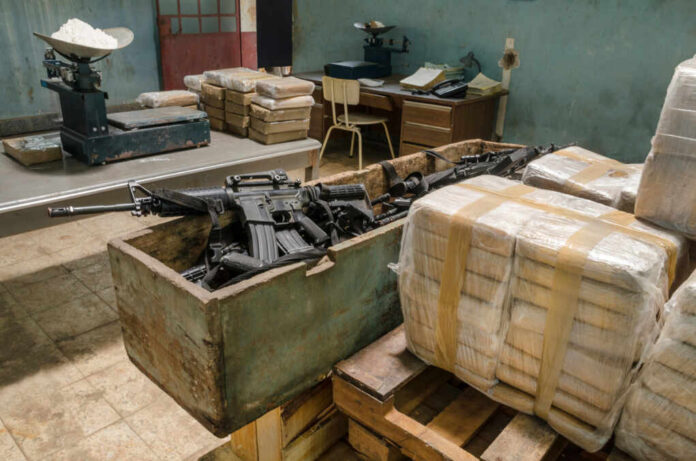
President Trump’s historic move to declare drug cartels “unlawful combatants” and invoke laws of war against them signals a seismic shift in America’s response to cartel violence.
Story Highlights
- Trump formally declares a “non-international armed conflict” with Caribbean drug cartels, labeling them “unlawful combatants.”
- This marks the first time the US treats criminal organizations under the laws of war, not just as criminal enterprises.
- The policy shift could result in military action, expanded executive powers, and increased tension with Caribbean nations.
- Experts warn the move risks blurring lines between crime and war, raising concerns about legality, sovereignty, and human rights.
Trump’s Declaration: A New Front in the War on Cartels
On October 3, 2025, President Donald Trump announced that the United States is now in a “non-international armed conflict” with Caribbean-based drug cartels, designating these groups as “unlawful combatants.” For the first time, the US government is signaling its intent to treat transnational criminal organizations as military adversaries rather than mere lawbreakers. This dramatic shift opens the door for military force and extraordinary wartime authorities.
Trump’s declaration comes after a surge in cartel-related violence, trafficking, and attacks on US citizens, especially in border states and throughout the Caribbean. By invoking the laws of war, Trump seeks to expand executive authority, bypass slow-moving courts, and project American strength against what many see as a grave threat to sovereignty and public safety. This approach directly challenges the criminal justice framework that, for decades, has struggled to contain drug cartels’ influence.
Watch; US in ‘non-international armed conflict’ with Caribbean cartels
Legal and International Ramifications: Testing Boundaries
Historically, US counter-narcotics strategy relied on law enforcement, intelligence, and limited military support to partner nations. Drug cartels were prosecuted under the RICO Act and other criminal statutes, not as parties to armed conflict. The Geneva Conventions distinguish between international armed conflicts and non-international armed conflicts, typically involving state and non-state actors within a single country’s territory. Trump’s move—framing cartels as unlawful combatants—places them in the same legal category as terrorist groups like Al-Qaeda or the Taliban, creating a precedent with sweeping implications for international law and diplomatic relations.
"Trump declares US is now in a ‘non-international armed conflict’ and labels Caribbean drug cartels unlawful combatants" – The Independent #SmartNews https://t.co/mVYhy4ueqL
— George Leroy Tirebiter (@MarkKepes) October 2, 2025
Military, Social, and Political Impact in the US and Caribbean
The immediate effects of Trump’s declaration include heightened tension between the US and Caribbean nations, as well as internal debate within the Pentagon and Justice Department about operational and legal consequences. Policy reviews are underway to determine the feasibility and scope of military actions, while US diplomats scramble to reassure allies and prevent diplomatic fallout. On the ground, the prospect of treating cartel members as combatants—with potential for detention without trial—raises alarm among human rights organizations and legal scholars.
For ordinary Americans, especially those living in border states or affected communities, the new policy is seen as a long-overdue response to criminal networks that have exploited legal loopholes and overwhelmed law enforcement. However, the move also risks collateral damage, disrupting trade, tourism, and regional stability. The legal sector faces challenges to established frameworks, while the security sector contemplates an expanded military role in law enforcement—an outcome that could redefine the boundaries of government power for years to come.
Sources:
International Committee of the Red Cross (ICRC), “How is the Term ‘Armed Conflict’ Defined in International Humanitarian Law?” (2022).
Harvard Law Review, “Criminal Organizations and the Laws of War” (2023).
RAND Corporation, “Countering Transnational Organized Crime: Challenges and Opportunities” (2024).
Human Rights Watch, “US Counter-Narcotics Policy and Human Rights” (2025).
Brookings Institution, “The Militarization of US Drug Policy” (2024).
US Department of Defense, Press Briefings (2025).
US Department of Justice, Policy Statements (2025).
Statements from Caribbean Community (CARICOM) leaders (2025).

























